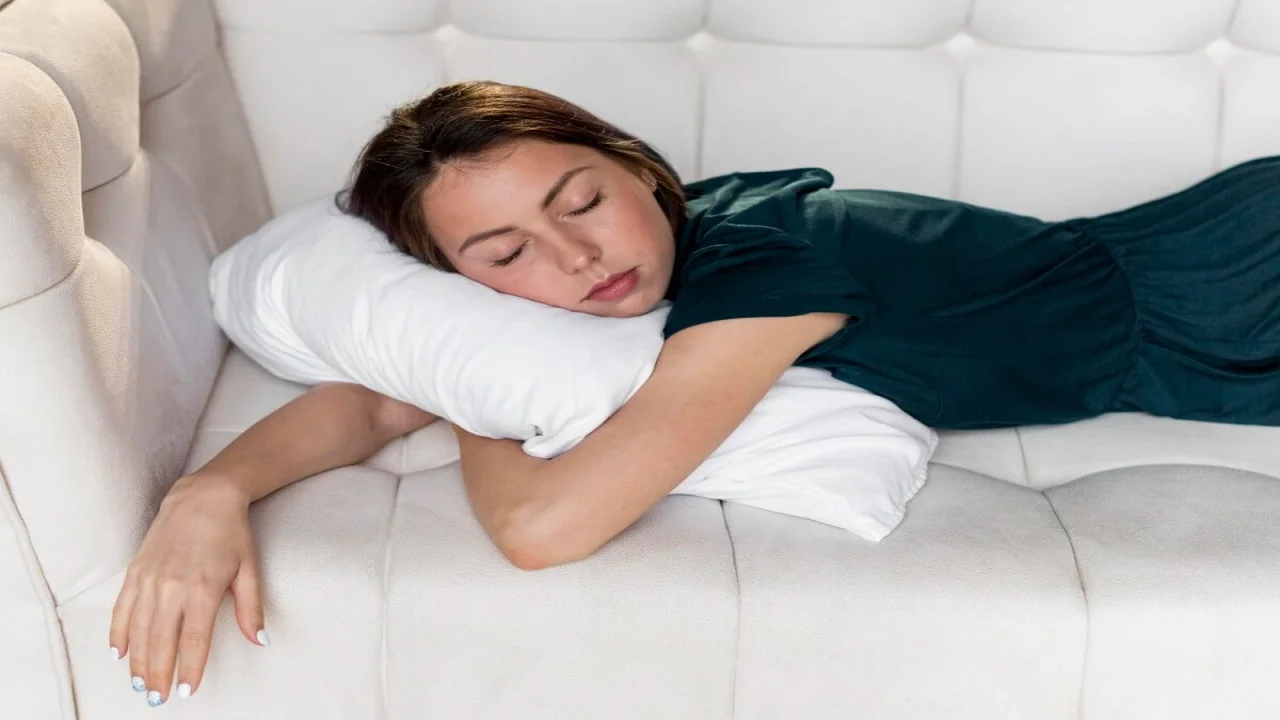Causes and Remedies for Drooling While Sleeping: Improve Sleep Health
Discover the causes of drooling while sleeping and find simple remedies to prevent saliva on your pillow for better sleep hygiene.

Have you ever woken up to find saliva stains on your pillow? This common occurrence, known as drooling while sleeping, can be a source of embarrassment for some, but it’s more prevalent than you might think. Understanding the causes of drooling while sleeping and how to manage it can lead to better sleep health and a more comfortable rest. Whether it’s due to an underlying condition or simply a matter of sleep hygiene, drooling at night can be addressed with a few practical strategies.
Why Do I Drool on My Pillow at Night?
The appearance of saliva on your pillow in the morning is the result of excessive saliva production during sleep. Typically, our bodies produce saliva constantly, but during the day, swallowing keeps it in check. At night, when our muscles relax, especially in deep sleep, the swallowing reflex diminishes, causing overnight drooling. Several factors contribute to this, including:
- Sleep Position: Your sleep position plays a significant role. If you sleep on your side or stomach, gravity may cause saliva to pool in your mouth and leak out, leading to morning pillow stains. Adjusting your sleep position might be the first step in reducing drooling.
- Allergies or Nasal Congestion: When nasal passages are blocked, you’re forced to breathe through your mouth, which can lead to drooling. This is especially common during allergy season or when you're suffering from a cold. Drooling while sleeping due to allergies is a frequent complaint.
- Sleep Apnea and Drooling: Sleep apnea, a condition where breathing repeatedly stops and starts during sleep, can be linked to drooling. Individuals with sleep apnea often sleep with their mouths open, leading to excessive saliva production.
- Medications: Certain medications, particularly those that affect the nervous system, can cause an increase in saliva production, contributing to drooling at night.
Health Concerns Related to Sleep Drooling
While sleep drooling is mostly harmless, excessive drooling can sometimes signal underlying health issues. Conditions such as sleep apnea, gastroesophageal reflux disease (GERD), or neurological disorders like Parkinson’s disease can be associated with excessive nighttime drooling. If you notice a sudden increase in drooling while sleeping, accompanied by other symptoms such as difficulty swallowing or chronic nasal congestion, it may be worth consulting a healthcare professional.
Sleep Hygiene and Drooling
Improving your sleep hygiene can greatly reduce the incidence of drooling. Sleep hygiene refers to the practices and habits that promote good sleep quality, such as maintaining a consistent sleep schedule, sleeping in a comfortable environment, and managing stress. Incorporating these habits can positively impact your overall sleep health.
Remedies for Sleep Drooling
Addressing sleep drooling doesn't have to be complicated. There are several simple and effective remedies for sleep drooling:
- Change Your Sleep Position: If you tend to sleep on your side or stomach, try switching to sleeping on your back. Sleep position to reduce drooling is one of the easiest remedies, as sleeping on your back helps keep saliva from escaping your mouth. For side-sleepers wondering how to stop drooling while sleeping on your side, using a supportive pillow may help elevate your head and minimize drooling.
- Improve Nasal Breathing: Keeping your nasal passages clear through the use of allergy medications, nasal strips, or a humidifier can reduce overnight drooling. If you’re drooling while sleeping due to allergies, addressing the root cause will help alleviate the symptoms.
- Stay Hydrated: Dehydration can thicken saliva, making it more likely to pool in your mouth. Drinking plenty of water throughout the day can improve your body’s overall function and reduce excessive saliva production.
- Natural Remedies for Sleep Drooling: Herbal teas with calming effects, such as chamomile or peppermint, may help with relaxation and minimize sleep drooling. Incorporating these into your nighttime routine can also improve sleep quality.
Sleep Solutions for Drooling
For those who experience excessive drooling regularly, investing in the right bedding materials can make a world of difference. Best pillows for droolers are often made from moisture-wicking fabrics that absorb and disperse moisture, keeping you comfortable throughout the night. Pillows designed to promote better airflow, like those made from memory foam, can also reduce drooling.
Another critical factor is sleep quality. Poor sleep quality not only worsens drooling but can also affect your overall health. Ensuring your sleep health is optimized can naturally help in reducing symptoms like drooling. For individuals struggling with how to prevent drooling while sleeping, improving sleep environment and routines is key.
When to Seek Medical Advice
Occasional saliva stains on your pillow aren't usually a cause for concern, but if you notice excessive drooling accompanied by other symptoms like snoring, gasping for air during sleep, or persistent nasal congestion, it's wise to consult with a medical professional. These symptoms could indicate more serious issues, such as sleep apnea or GERD.
Conclusion: Finding Solutions for Sleep Drooling
Waking up to a drool-stained pillow might be annoying, but it’s manageable. By understanding the causes of drooling while sleeping, incorporating remedies for sleep drooling, and maintaining good sleep hygiene, you can minimize or even prevent this issue. Whether it's through simple adjustments like changing your sleep position or addressing an underlying medical condition, there are plenty of ways to wake up to a fresh, dry pillow.
If drooling persists despite trying these strategies, seeking professional advice can help identify and treat any underlying health concerns, ensuring you enjoy a better, healthier night's sleep.
The information on this page is peer reviewed by a qualified editorial review board member. Learn more about us and our editorial process.
Last reviewed on .
Article history
- Latest version
Cite this page:
- Posted by Dayyal Dungrela